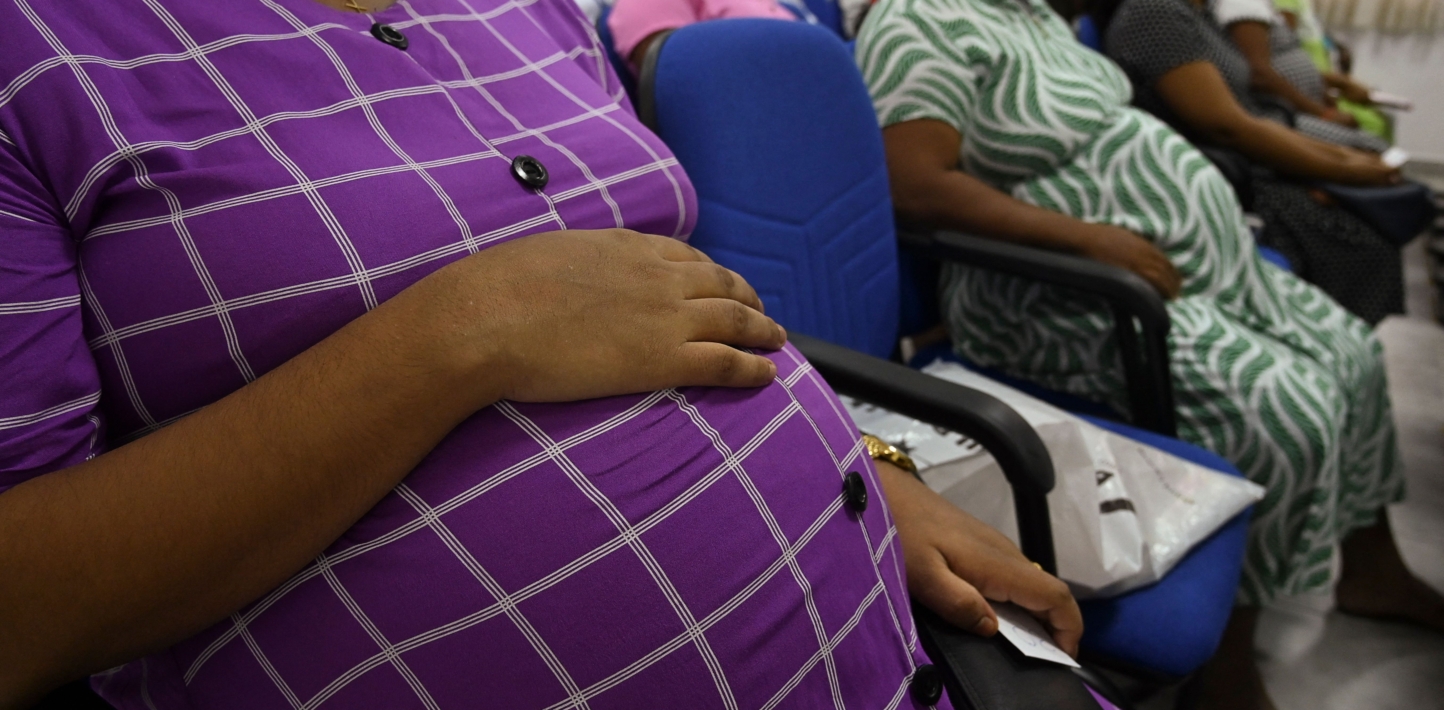The Government of Sri Lanka must ensure access to adequate nutrition for all pregnant and breastfeeding women amid the ongoing economic crisis in the country, Amnesty International said today in a new research briefing.
The briefing, ‘Foregoing Meals to Make-Do’, examines the impact of the economic crisis on access to nutrition for pregnant and breastfeeding women, with a particular focus on women living below the poverty line in Colombo. Falling incomes, loss of livelihoods and inflation have reduced women’s purchasing power while government-funded programs aimed at increasing maternal nutrition have also been affected by the crisis.
“Due to the severity of the economic crisis in Sri Lanka, health and nutrition have taken a back seat. The situation has taken a grave toll on the health and well-being of pregnant and breastfeeding women. These individuals have also been disproportionately impacted by the crisis, which has seen poverty rates double in the space of a year due to the crisis,” said Dinushika Dissanayake, Amnesty International’s Deputy Regional Director for South Asia.
..The economic crisis in Sri Lanka… has taken a grave toll on the health and well-being of pregnant and breastfeeding women.
Dinushika Dissanayake, Amnesty International’s Deputy Regional Director for South Asia
Amnesty International interviewed 45 people for this briefing, including healthcare workers, members of civil society, and pregnant and breastfeeding women from a variety of ethnic and religious backgrounds, all of whom live in informal settlements and tenement blocks in Colombo.
‘We somehow try to forgo a meal’
The women Amnesty International spoke to raised concerns about the unaffordability of food, the inconsistent supply of ‘Thriposha’ food supplements, and the inability to redeem food vouchers offered through government programs.
Pregnant and breastfeeding women said they aimed to “fill their stomach” rather than consume recommended daily amounts of variety of nutrients due to the high cost of food. In order to have three meals a day, many opted to limit portion sizes, while some reduced their number of daily meals to two. One breastfeeding woman told Amnesty International: “We eat breakfast and dinner and try to skip lunch… We eat a biscuit for lunch with a cup of tea.”
We eat breakfast and dinner and try to skip lunch…
A breastfeeding woman
We eat a biscuit for lunch with a cup of tea.
In almost all households Amnesty International spoke to, consumption of meat, vegetables, fruit and milk had drastically reduced. Such deprivation increases the risk of nutrient deficiencies, which can affect the development of the foetus. Families that previously consumed meat or fish on a weekly basis now consume them just once a month or only when money is available. Another breastfeeding woman said: “We can’t afford milk-inducing food. You see fish is expensive. So, we buy what we can afford for the money we have.”
Most pregnant and breastfeeding women Amnesty International spoke to said that they were unemployed and their husbands did not have a regular income amid the economic crisis.
In February 2023, pregnant and breastfeeding told Amnesty International that government food vouchers, which are usually offered to pregnant and breastfeeding women, could not be redeemed due to a lack of state funds.
Amnesty International wrote to the Ministry of Women, the Ministry of Health and the Ministry of Public Administration to raise these concerns, but did not receive a response at the time of publication.
‘We have to see patients suffering’
Sri Lanka’s public health system has also been affected by shortages of medicine and equipment. Health workers providing maternal care told Amnesty International that they had to stop, delay or postpone non-essential surgeries and procedures. One doctor, who said they have to ration drugs for emergency cases because future supplies are uncertain, told Amnesty: “We have to see patients suffering and we cannot do anything.”
Amnesty found that health workers reused equipment or told patients to purchase medicine or equipment from private pharmacies because state-run hospitals had run out. Meanwhile, medicines in private pharmacies remain unaffordable to most due to price hikes and the devaluation of the Sri Lankan Rupee.
We have to see patients suffering
A doctor
and we cannot do anything.
Sri Lanka has ratified several international accords requiring it to ensure that pregnant and breastfeeding women have access to adequate healthcare and food, including the Convention on the Elimination of All Forms of Discrimination Against Women (CEDAW) and the International Covenant on Economic, Social and Cultural Rights (ICESCR).
The Government of Sri Lanka must urgently meet its international human rights obligations, including by ensuring access to adequate, affordable and good quality nutrition for pregnant and breastfeeding women.
Dinushika Dissanayake
“Prolonged food insecurity and inadequate nutrition can lead to serious long-term consequences for mothers and their children if left unaddressed. The Government of Sri Lanka must urgently meet its international human rights obligations, including by ensuring access to adequate, affordable and good quality nutrition for pregnant and breastfeeding women. The international community must also play a role in supporting the government to ensure pregnant and breastfeeding women are able to access adequate food and nutrition,” said Dinushika Dissanayake.


